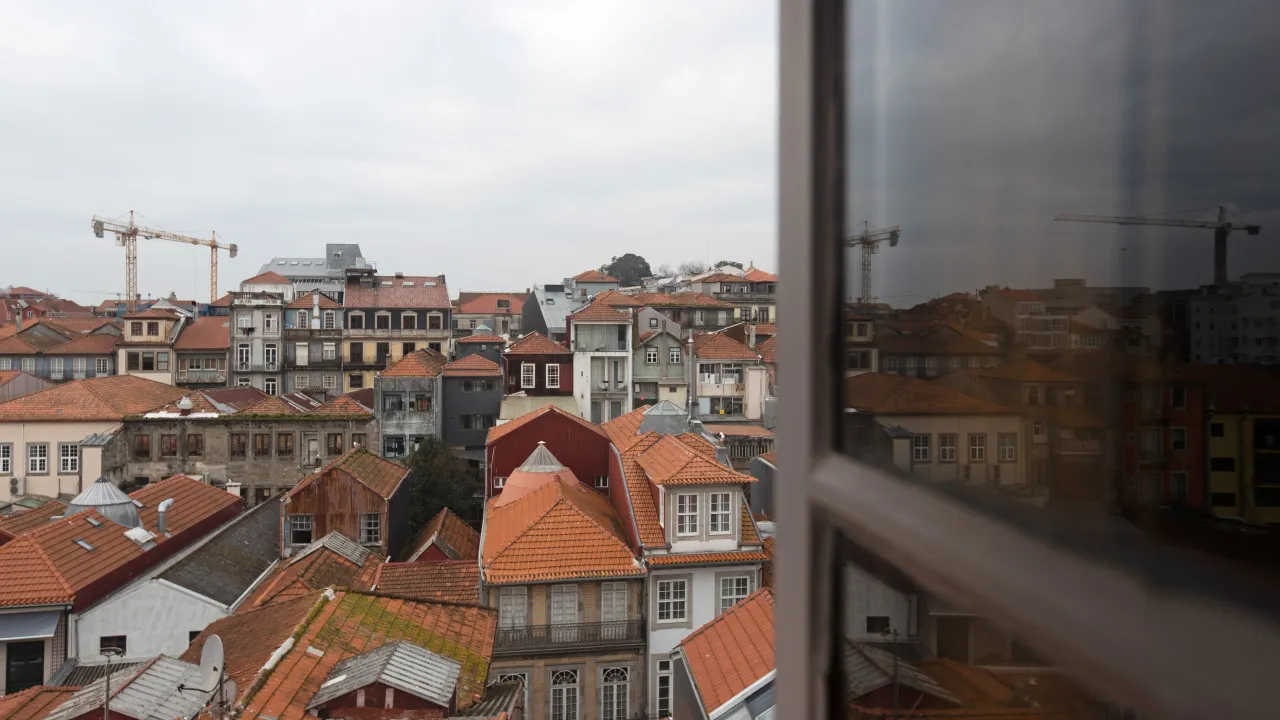More and more young people are emigrating abroad in search of better living conditions. In some cases, emigration was the only way for them to leave their parents’ home. They have one thing in common: they don’t want to return to Portugal.
Pedro, Catarina and Maria João. They were born and outlined their dreams for the future in Portugal, a country of black suits and university chants that, in the end, doesn’t know what to do with recent graduates with straw in hand. Higher education, one of the most prestigious in Europe, confines its prestige to these years of intensive study. Then it ends up in the aridity of a precarious labor market and huge obstacles in accessing housing. Going on an adventure abroad is sometimes the only alternative to an even more uncertain future at home.
For more and more young people, Portugal is merely a launching pad in search of the life they deserve. Jobs even exist in the country of birth, but low wages and a disproportionately high lifestyle drive away those who still dare to think of youth as the best years of their lives. The face of the emigrant is no longer represented solely by the humble worker, willing to become cheap labor in a nearby country. These are the new emigrants: young, ambitious, and highly qualified.
Foreign countries offer better salaries and the possibility of a looser life, outside the parental sphere. Young Portuguese are the ones who leave the nest later than the average European, with independence in their twenties being spent under the same roof as childhood and adolescence, in a constant postponement of emancipation. In some cases, leaving their parents’ home is only possible by leaving the country.
Dutch chemistry
Pedro Lourenço has been a chemical engineer in the Netherlands since October of last year. He is the youngest of the trio of interviewees, at 27 years old, but he has already passed through several European countries as part of his doctoral research in Materials Sciences. “The pay is higher in virtually every country in the European Union, even taking into account the lifestyle. You earn a lot more, no doubt, but that’s not all,” he assures.
Pedro knows that he would be living in his mother’s house if he had stayed in Rio de Mouro, where he grew up and attended high school. Not so much because he doesn’t have the financial capacity to rent a house, not least because the starting salary in his area of work is around 1,300 euros in Portugal, but because he doesn’t consider it “reasonable” to have to spend more than half of his salary on the mere right to housing. “For someone who got a PhD, it doesn’t make sense to be left with only 600 euros after paying the rent.”
Data from the National Statistics Institute (INE) are proof of this reality. The median value of rents in Portugal increased again at the end of the third quarter of last year and was already the highest since at least 2020. A house for rent in Sintra, for example, in the municipality that Rio de Mouro is part of, reached a value of 8.56 euros per square meter at the end of the third quarter of last year. If Pedro wanted to rent a house near his mother, he would probably see half his salary disappear in a 75 square meter apartment.
In Eindhoven, the reality is different. The salary he receives allows him to buy everything he wants and needs. Part of the money is immediately saved; the other part he spends on trips around the globe. It is not material goods that he seeks. It is the experience of knowing the world.
But, as I said, “that’s not all. Beyond the financial aspect, the whole “work culture” is different and is reduced to one of the many aspects in the life of the working person, not the central purpose. “You only work a certain number of hours a day, the prospects for career advancement are better.” Peter lists the privileges of working in Eindhoven in telephone conversation, with birdsong and laughter from other people’s conversations occasionally bursting through the speakers. He’s off to work in a few hours, with a “genuine motivation” that he knows he wouldn’t find in Portugal.
“This working environment has to do with the unions,” he explains. “Although Holland is a liberal and capitalist country, it has unions that work very well and negotiate with the government.” Portugal is “lax” when it comes to fighting for workers’ rights: criticism is heard here and there, social network comments multiply in laments of “everything is working badly” and “this can’t be”, but rarely do people take to the streets in protests worthy of the name. And everything remains the same.
Adding to the difficulties, Portugal is also a country of limited creativity. Pedro works in a semiconductor company where chips are made for cell phones, cars and computers. In Portugal, he would have to resign himself to a job in programming: similar, but not quite his area. “I imagine, because I never worked in Portugal, but probably now I would be working for a consulting company in charge of doing a project for some other company.” In Eindhoven, he has the opportunity to “do new things, create and change them” from the ground up, to be a creative agent and not just a passive one. “There are functions here that don’t even have a name in Portugal.”

Microbiology in Copenhagen
In the heart of Copenhagen, Denmark, Catarina Rocha struggles with the same difficulty. After her Master’s degree in Microbiology in Lisbon and a stint in Germany, she has been working for about a year as an analytical chemist at Copenhagen Technical University, where she is also doing a PhD in Biotechnology, Biochemistry and Microbiology. She takes a few moments to explain the positions she has held in recent years, pronouncing “analytical chemistry” and “senior technician” with palpable hesitation, before apologizing: “I have some difficulty in translating the positions I’ve been in until now, precisely because there are no equivalents in Portugal.
Science in Portugal is a narrow path with no major ramifications. “It’s doing your master’s, PhD, post-doc, and there aren’t many options beyond that,” she laments. What there is, is on green receipts and always overshadowed by the inescapable feeling that you can be fired “for no reason, from one day to the next.” In contrast to the closed doors and dead ends in her home country, opportunities abound abroad and have led her to “the best country” she has ever lived in, Denmark, where even the six-hour sunny winters are well managed with vitamin D supplements and a balance between working hours and, finally, life.
Like Pedro, the 30-year-old starts by recognizing that “salaries are very different” and allow to keep up with a somewhat high cost of living when compared to other European countries, especially in the rent and in non-essential activities such as going to the movies or having dinner in restaurants. Still, it is possible to enjoy “everything,” much more than would be possible in Portugal, where the gap between wages and cost of living is becoming a chasm.
In addition to the salary, “all the security that comes with it” is also important. Research work in Denmark has all the perks associated with an employment contract, from health insurance to vacation allowances and occasional bonuses. “It’s not just that the salary itself is higher, it’s also everything associated with not being a grant, which would be the status I would be working in if I were in Portugal.
More than necessity, Catarina recognizes that it was her passion for the unknown that pushed her out. “I wanted to experience an international environment, I wanted to open horizons”, and having found a stability that was practically inaccessible to colleagues who stayed in Portugal was the cherry on top of a cake she had been planning to bake from the start. If you feel that “there’s nothing left to learn”, you don’t need to be tied to an outdated job because there’s a long list of options waiting for you.
The stability, the peace of mind of knowing that your job should fit your needs and not limit them, has an impact on your quality of life. After seven and a half hours of work, Danish culture not only expects but encourages you to make time for your family, to go for walks, to practice hobbies on a daily basis. “People are more relaxed: there’s no idea that the week is for working and that you’re only allowed to rest at the weekend,” says Catarina, although the old Portuguese customs have resisted for some time.
Both in Germany and in Denmark, as soon as she exceeded her daily working hours, her colleagues made a point of reminding her of her new environment. Between giggles, she imitated the assertive tone of voice of those who approached her with a snort and said: “Look, it’s okay, you just got here, but that’s how things work here. You’re not supposed to stay longer than your working hours.” The same goes for vacation days – a right so inviolable that even Human Resources oversees it closely. “We can’t pass more than five vacation days to the next year, and if several months go by without the worker taking vacation they call it in right away.”
Once she has adapted to the Nordic work culture, Catarina admits that returning to the Portuguese gear “is not at all in the plans”. Little connects her to the country, anyway. The longing for her family is managed with phone calls, vacations spent together, and visits from one side or the other. The Portuguese and Danish capitals are less than four hours away and, shrugging her shoulders, “it’s a management”. Claiming a better future almost always implies leaving something behind, but he already knew this: “it’s part of the decision we made when we left the country.

Teaching Portuguese in Macau
For Maria João da Cruz, a Portuguese as a Foreign Language teacher in Macau, the decision was more difficult. Macau requires such a long intercontinental plane trip that there isn’t even a direct route from the European periphery to the other side of the world.
With a degree in Translation, she knew that her Master’s opened doors to the rest of Europe. Staying in Portugal was the last option, because she didn’t want to subject herself “to green receipts and precarious working conditions.” She began with an internship in Berlin, where she received a phone call that would dictate the course of the following years. Would she be interested in a position in Macau that had just opened?
Even when he was accepted and began teaching at the Instituto Português do Oriente, generally shortened to the acronym IPOR, which makes it easier to slip into the language, he “came to experience” and wasn’t thinking of making Macau a permanent destination. The plan was “to stay for a while and then return to Europe, but that didn’t happen. He was 24 when he first set foot on Asian soil. Now 28, she has a baby daughter who is beginning to add her first words in English, Mandarin and Cantonese to her mother’s language.
Macau passed into Chinese hands in 1999, but never definitively severed the link with Portugal. A linguistic and cultural bond that extends from custard tarts to cobblestones. There is a Portuguese presence still anchored in the peninsula, officially represented by institutions like IPOR, where both Macanese and Chinese students learn one of Macau’s two official languages. The language that appears on documents and street names, but which few locals understand.
Macau offers more financial stability than Portugal. In addition to higher salaries, it also offers efficient infrastructures and a cost of living that, if before it was understandably more expensive because it was the gambling capital of the world, is now comparable to the Portuguese average. Rents have increased in recent years, much due to the pandemic. Maria João says that a two bedroom apartment “is probably around 1,100, 1,200 euros”, but in Lisbon, there are even more expensive studio apartments advertised on rental platforms.
Maria João’s daughter was born during the pandemic, when the measures in place required mass testing and quarantine whenever entering the country. She returned to Portugal with her husband and daughter in May 2022, unsure if they would return to Macau. She had been sending out resumes since February, preparing for a more or less prolonged stay in Barcelos, but everything was different. For starters, the rents. “When I left in 2014 they were around 300, 400 euros, but now they had gone up to 700 or 800 euros.”
Then, the salaries that would condemn her to stay at her parents’ home. Of all the resumes sent out, she received a response from only one language school. “I went to the interview and the director of the school told me that they paid 20 euros an hour, on a green receipt basis, in the post-labor hours. So I thought: I have a daughter, I have a husband who also hasn’t found a job yet, and I’ll get about 300 euros a month, with discounts. Is that it?”
The laughter still rings out in disbelief, marked by indignation. It was then, at that moment, that she learned that her ties with Portugal had been definitively cut. Not by her own decision, but by the country that seemed unable to take her in. The institution where she works in Macau “may not be the best paying”, but it guarantees her the stability of knowing that she has money to “pay the bills at the end of the month and still get something back”. In Portugal, she would work just to survive.
Maria João is 28 years old and has a youth to enjoy, but she also feels the weight of responsibility as a mother: “I want to set an example to my daughter that you can’t just work and not see any return, that you have to enjoy and live life. Five years in Macau, she is only two years away from obtaining her permanent resident ID card and all the benefits that come with it. The annual government subsidies; the security of knowing that he can always return, even if one day he changes his mind and tries somewhere else. Not Portugal, which is no longer an option since his last visit. “It’s very, very sad to see highly qualified young people leaving Portugal because the country can’t hold on to them,” he laments.
He can’t hold on to them and ends up losing them, perhaps forever. According to United Nations figures, cited by the Observatório da Emigração, in 2020 there were around two million Portuguese emigrants living abroad, a year in which the highest number of Portuguese emigrants ever in the world would have been reached.

Pedro accepted the offer from the company where he works and in October he starts a new two-year journey in South Korea. Catarina is satisfied in Copenhagen for the time being, but is sure that she will “jump around a bit more” in the coming years. They are different professions, countries and circumstances, but the three young people speak with one voice: Portugal is not part of the plan. Youth is finite and too ephemeral to be wasted in a week dragged out at cost and in a weekend so fleeting that it soon dies out on another Monday. As Nordic thinking reminds us, the worker is a human being, not a piece in a dehumanizing system that does not recognize their merit and worth. So they stay abroad.








